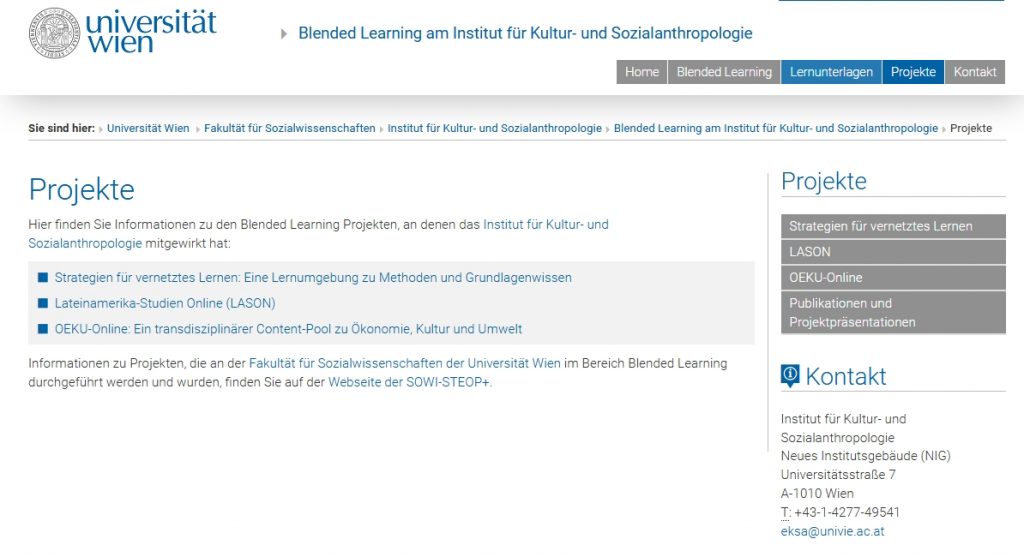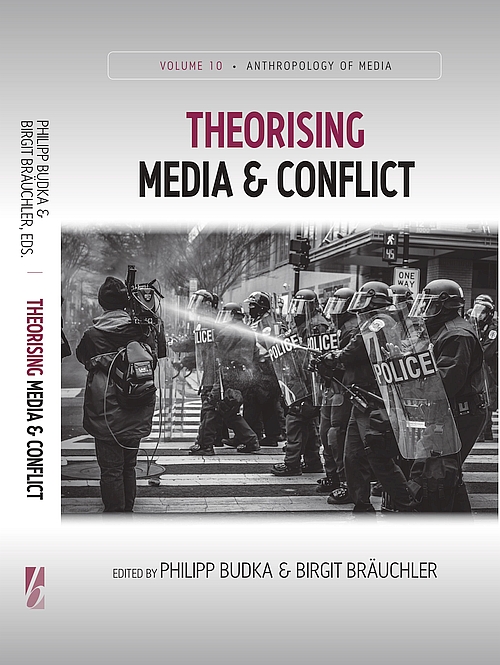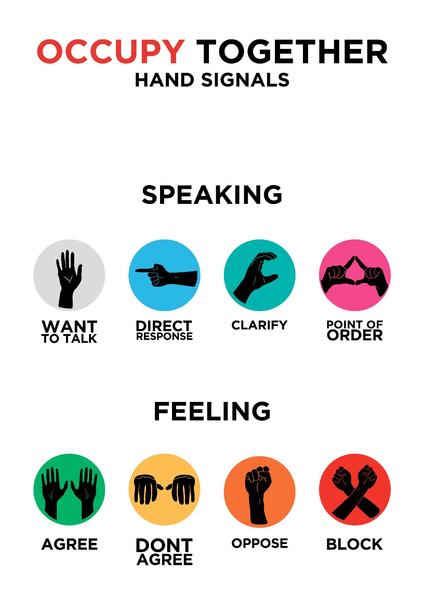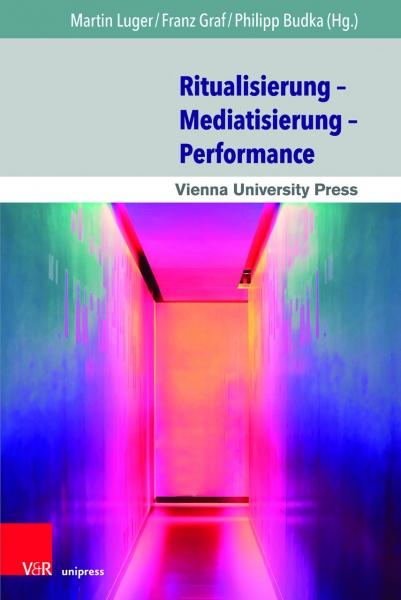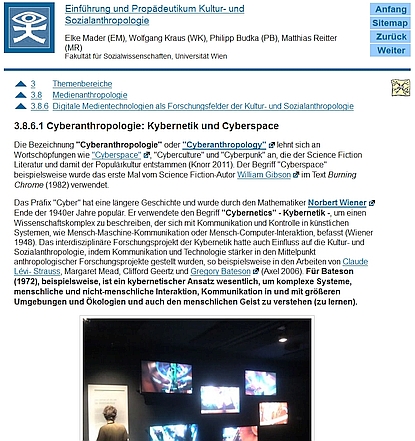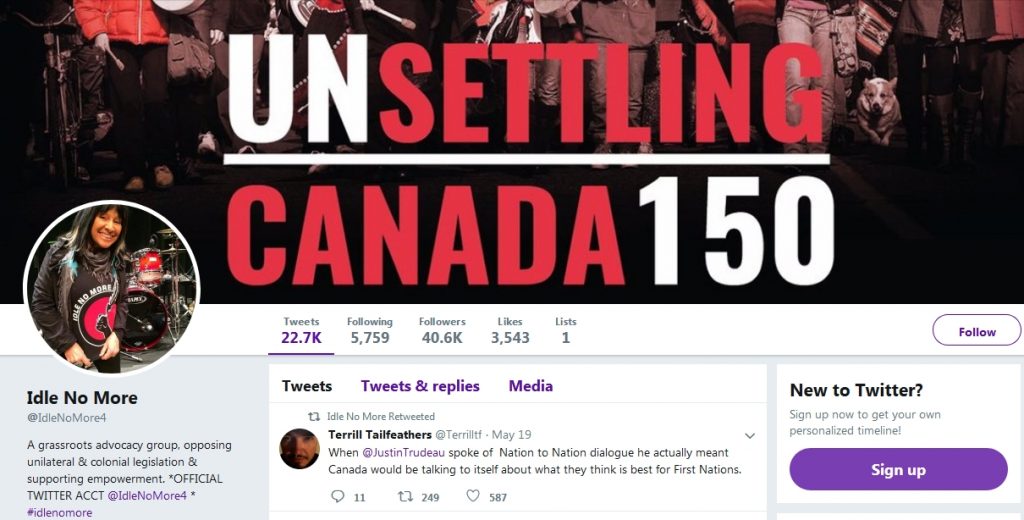In this lecture/seminar at the Department of Social and Cultural Anthropology, we discuss how ethnography contributes to the exploration, description and understanding of digitally mediated processes and practices (in German).
In dieser Lehrveranstaltung erhalten Studierende einen Einblick in die Ethnographie digitaler Medien. Dabei werden sowohl theoretische Zugänge und Konzepte als auch praxisnahen Anwendungs- und Erfahrungswerte vermittelt.
Digitale Medien – wie Internet, Social Media und Smartphones – ermöglichen neue Formen medialer Kommunikation und Repräsentation, die in Zusammenhang mit unterschiedlichen soziokulturellen, politischen und ökonomischen Faktoren und Dimensionen stehen. Diese Medientechnologien überbrücken nicht nur Zeit und Raum, sie gestalten diese neu. Sie ermöglichen die Vernetzung und Mobilisierung von Menschen und die Konstruktion vielfältiger Formen von individueller und kollektiver Identität. Welche theoretischen und methodologischen Zugänge sind hilfreich, um neue digitale Medientechnologien und damit zusammenhängende Praktiken und Sozialitäten zu beschreiben und zu analysieren? Können wir auf das “klassische” methodische Repertoire der Kultur- und Sozialanthropologie zurückgreifen oder benötigt es neue digitale Methoden und Techniken? Welche Bedeutung haben etwa Datensicherung und die Archivierung von digitalen Artefakten? Und welche ethischen Aspekte in der Digitalen Ethnographie gilt es zu beachten?
Studierende lernen anhand von konkreten Fallbeispielen, ausgewählte theoretische und methodologische Zugänge kennen. Sie gewinnen so einen Überblick über die Diversität digitaler Phänomene, Prozesse und Praktiken sowie deren ethnographische Beschreibung und Untersuchung.
Literatur (Auswahl)
Boellstorff, T., Nardi, B., Pearce, C., & Taylor, T. L. (2012). Ethnography and virtual worlds: A handbook of method. Princeton: Princeton University Press.
Budka, P. (2019). Von der Cyber Anthropologie zur Digitalen Anthropologie. Über die Rolle der Kultur- und Sozialanthropologie im Verstehen soziotechnischer Lebenswelten. In M. Luger, F. Graf & P. Budka (Eds.), Ritualisierung – Mediatisierung – Performance (pp. 163-188). Göttingen: V&R Unipress/Vienna University Press.
Hakken, D. (1999). Cyborgs@Cyberspace: An ethnographer looks to the future. London: Routledge.
Hjorth, L, Horst, H., Galloway, A., & Bell, G. (2016). The Routledge Companion to digital ethnography. New York: Routledge.
Miller, D., & Slater, D. (2002). Ethnography and the extreme Internet. In T. H. Eriksen (Ed.), Globalisation: Studies in anthropology (pp. 39-57). London: Pluto Press.
Pink, S., Horst, H., Postill, J., Hjorth, L., Lewis, T., & Tacchi, J. (2016). Digital ethnography: Principles and practice. Thousand Oaks, CA: Sage.
Postill, J., & Pink, S. (2012). Social media ethnography: The digital researcher in a messy web. Media International Australia, 145(1), 123-134.
More info: https://ufind.univie.ac.at/en/course.html?lv=240033&semester=2019W
